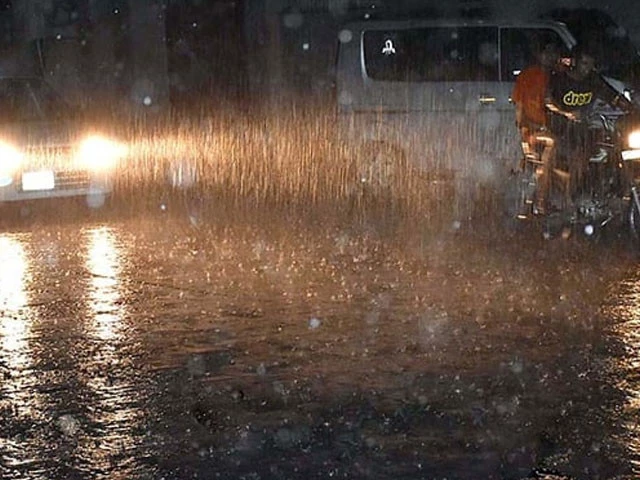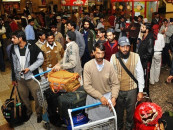Rain, thunderstorms predicted in northern regions
NDMA urges all provincial and district disaster management authorities to remain on high alert

The National Disaster Management Authority (NDMA) has issued a weather advisory on Monday, warning of persistent hot and dry conditions across most parts of Pakistan from June 2 to June 7.
The advisory also included a forecast for isolated rain, windstorms, and thunderstorms in select northern and northeastern regions.
According to the National Emergencies Operation Centre (NEOC), high temperatures will dominate Punjab, Sindh, and Balochistan, with little relief expected throughout the week.
However, intermittent weather disturbances are expected to impact parts of Khyber-Pakhtunkhwa (K-P), Gilgit-Baltistan (G-B), and Azad Jammu and Kashmir (AJK), potentially affecting local communities and agriculture.
نیشنل ایمرجنسیز آپریشن سینٹر:
— NDMA PAKISTAN (@ndmapk) June 2, 2025
2 -7 جون کے دوران بیشتر علاقوں میں موسم گرم اور خشک رہے گا، جبکہ پوٹھوہار، شمال مشرقی پنجاب، خیبر پختونخوا، گلگت بلتستان اور آزاد کشمیر میں گرج چمک کے ساتھ بارش کا امکان ہے۔تیز ہواؤں اور طوفان کے دوران کمزور تعمیرات، درختوں اور بل بورڈز سے دور رہیں pic.twitter.com/NUbh1kvCqc
In Punjab, scorching and dry weather conditions are expected to affect most areas. However, areas such as Rawalpindi, Attock, Chakwal, Jhelum, Lahore, Gujranwala, Sialkot, Multan, Bahawalpur, and Dera Ghazi Khan could experience sporadic thunderstorms, windstorms, and duststorms, particularly between June 2 and 5.
Balochistan will continue to endure hot and dry conditions, with districts like Quetta, Turbat, Gwadar, Khuzdar, and Zhob expected to feel the heat. Similarly, Sindh, including Karachi, Hyderabad, Sukkur, Larkana, and Mirpurkhas, will experience intense heat.
K-P will see hot and dry conditions, although northern regions such as Chitral, Dir, Swat, Kohistan, Shangla, Malakand, Abbottabad, and Kurram may receive isolated showers and thunderstorms between June 2 and 6.
In G-B and AJK, partly cloudy skies with chances of isolated rain and thunderstorms are expected in areas like Gilgit, Skardu, Hunza, Muzaffarabad, and Mirpur, continuing through June 7.
The NDMA has urged all provincial and district disaster management authorities to remain on high alert, improve emergency preparedness, and coordinate closely with local response units.
The public is advised to limit unnecessary travel, especially in hilly or flood-prone areas, and secure vulnerable infrastructure like trees, power lines, and solar panels.
Farmers have been advised to take measures to protect standing crops from hailstorms and strong winds. Tourists and travellers have been urged to exercise caution during outdoor or mountainous activities.

























COMMENTS
Comments are moderated and generally will be posted if they are on-topic and not abusive.
For more information, please see our Comments FAQ